KaaIoT Universal Energy Controller
Made in the USA edge-level gateway engineered for secure, vendor-neutral energy monitoring.
A secure, vendor-neutral edge gateway for real-time energy monitoring. Designed to work with any Modbus-based inverter, it offers full flexibility in deployment. Built in the United States with a transparent supply chain, the device complies with FEOC sourcing standards, making it suitable for government and enterprise programs that require trusted hardware.
Reserve a Device Request a Partnership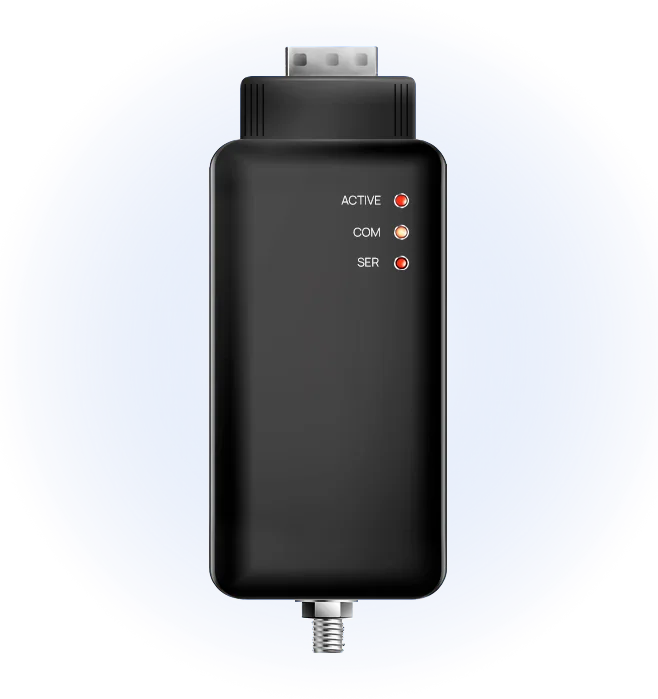
Product Architecture
A plug-and-play edge gateway for secure, vendor-independent energy monitoring. Compatible with inverter DB9 or RJ45 ports (RS-485/RS-232) — quick installation, no custom wiring needed.
Designed and manufactured in the USA, with USA-made firmware, the Energy Controller provides real-time Modbus-to-MQTT data translation and full device lifecycle management via the Kaaiot platform or any compatible MQTT broker.
Core specs:
Plug-and-play Simplicity
Open Communication
Local Data Ownership
Made in the USA. FEOC Compliant.
The KaaIot Energy Controller is proudly built in the United States using a trusted, transparent supply chain. Its FEOC status ensures eligibility for government and enterprise programs that prioritize secure, compliant hardware sourcing.

One device. Any inverter
The Kaaiot Energy Logger is fully compatible with Modbus-based inverters, providing maximum interoperability across different manufacturers.
It supports leading brands such as Deye, Solis, Growatt, GoodWe, Huawei, and many others — without the need for vendor-specific configuration or gateways.
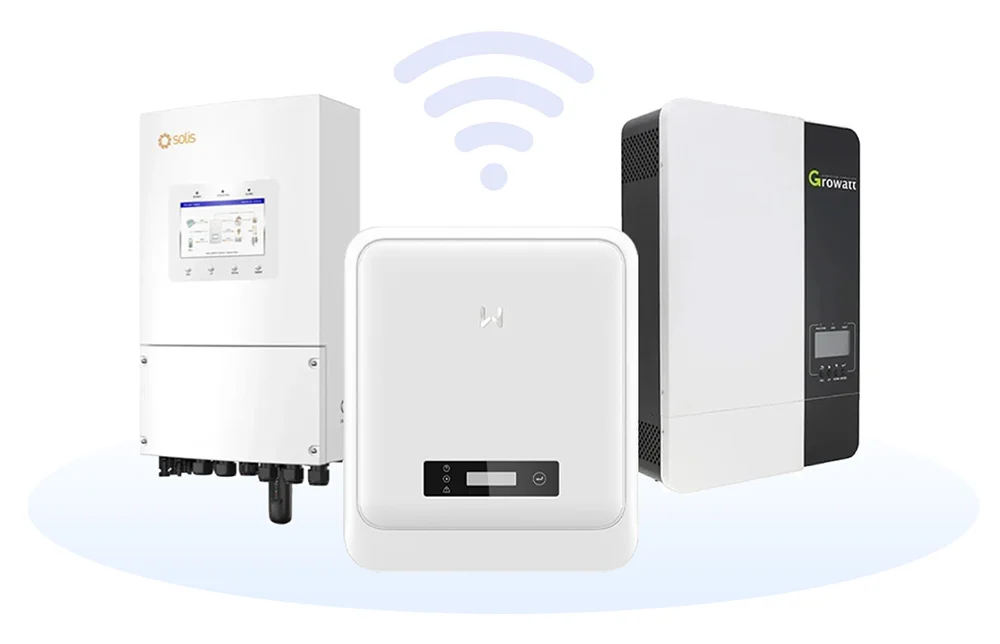
Platform Integration
The Kaaiot ecosystem is built around three user roles — OEM, Installer, and User — ensuring each stakeholder has the right tools:

OEM Manufacturers
OEMs manage entire device fleets and firmware remotely.

Installers
Installers deploy and service systems with ease.

End Users
End users gain full visibility and control over their energy data.
Real-Time & Historical Analytics
A dedicated time-series database captures and organizes device telemetry with built-in data retention and aggregation. It automatically compresses historical data into meaningful trends, ensuring long-term visibility without excessive storage use — efficient, reliable, and ready for real-time analytics.
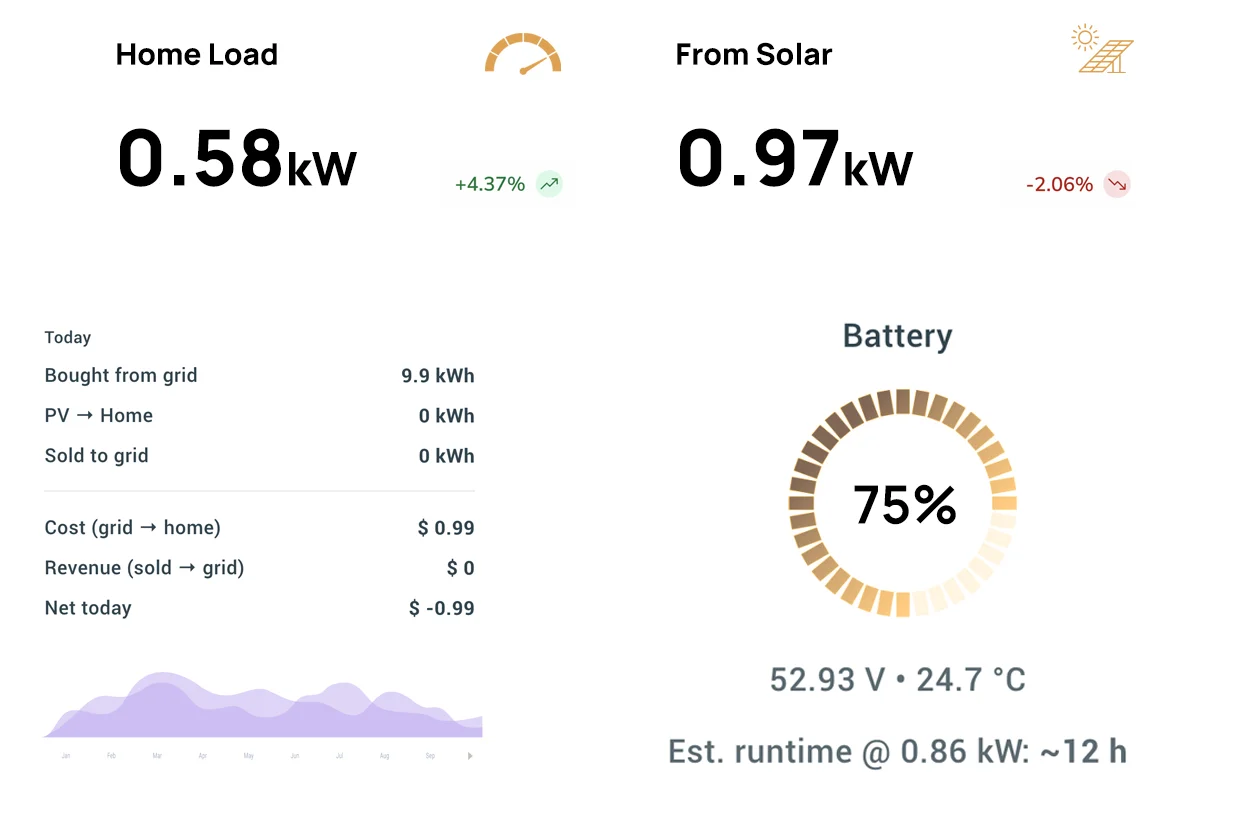
Hierarchical Device Management
Devices are organized in a clear hierarchical structure — from individual assets to sites and entire portfolios. This approach simplifies large-scale operations, enabling unified monitoring, configuration, and reporting across multiple locations while preserving detailed visibility at every level.
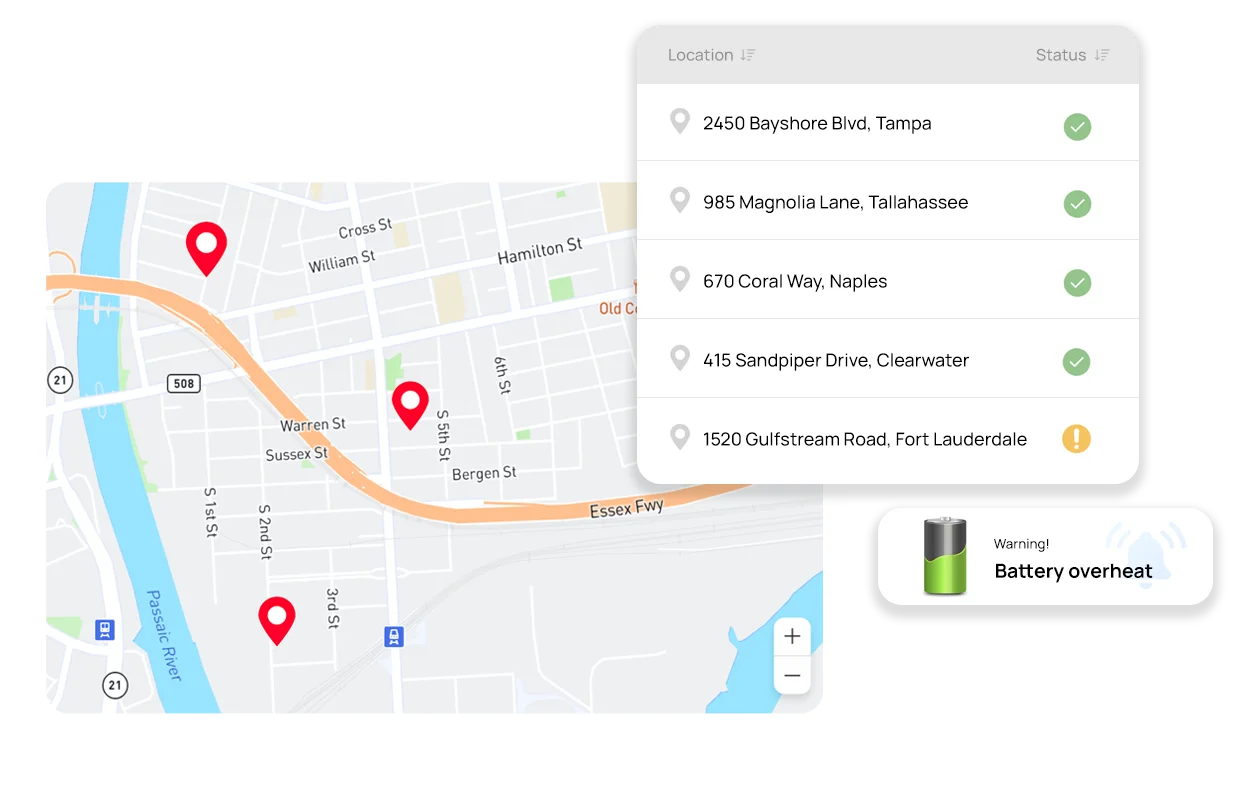
Smart Energy Flow Control
An event-driven logic system enables real-time responses to changing conditions, allowing you to set custom rules and automate energy workflows for smart, autonomous management. These rules can dynamically control how energy is distributed — whether to store excess power in batteries, feed it back into the electrical grid, or redirect it to meet on-site consumption needs.
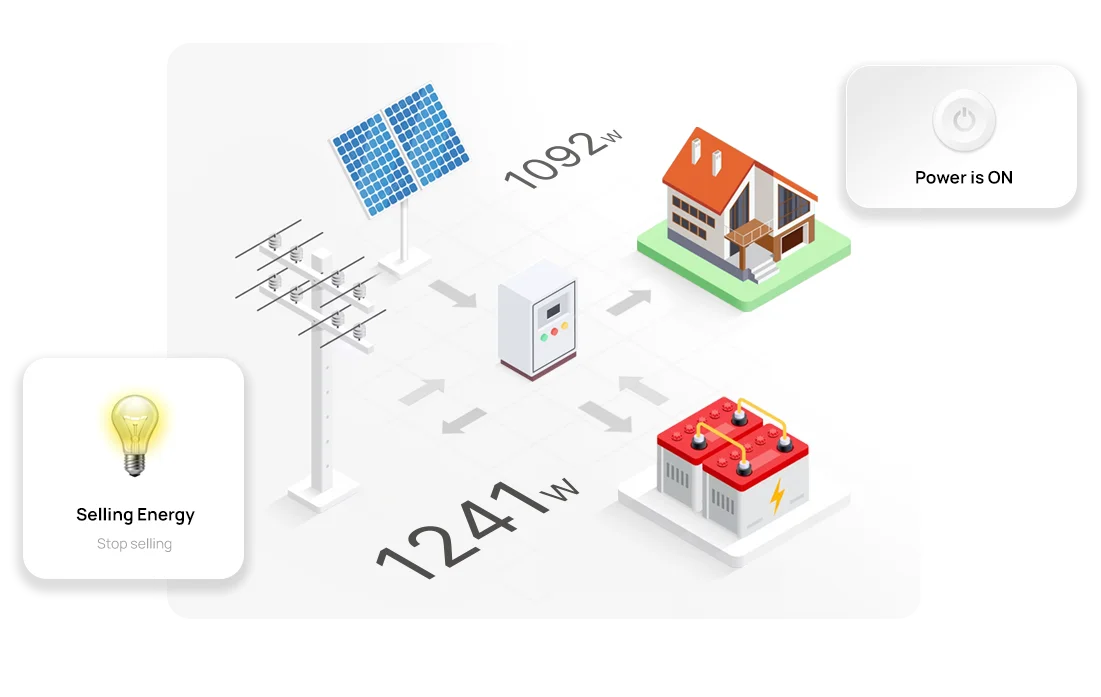
Intuitive Control & Visualization
Intuitive web and mobile applications provide real-time access to your energy data from anywhere. Build custom dashboards to visualize performance, track key metrics, and control devices — all through a clean, responsive interface designed for both operators and decision-makers.
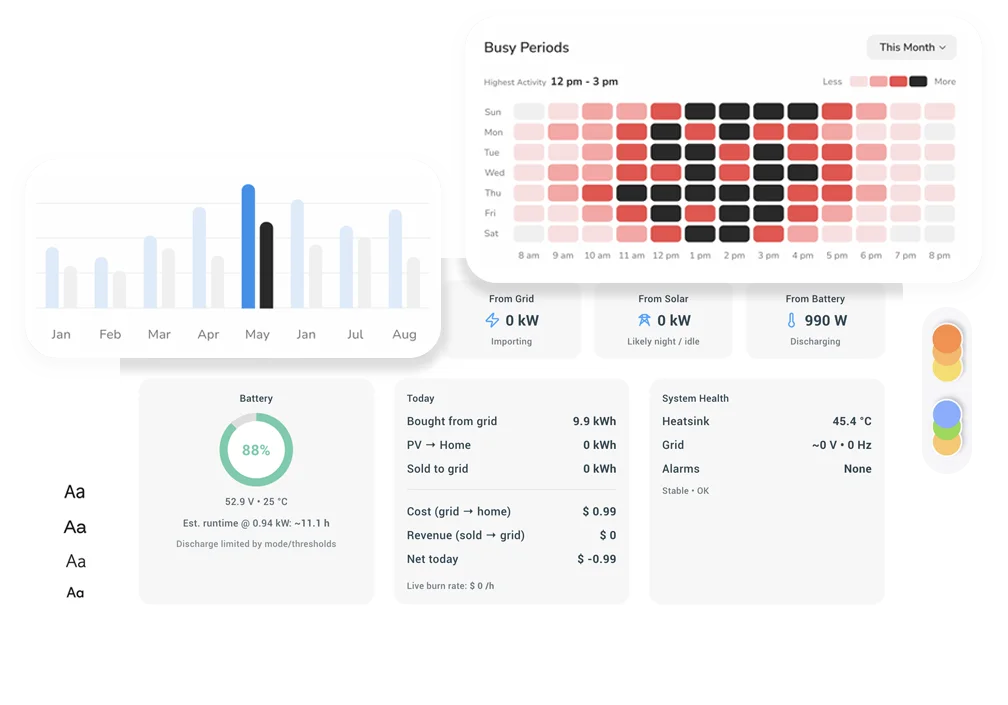
Branding
Deploy the platform under your own brand with full white-label flexibility — available on Kaaiot Cloud, Hosted, or Self-Hosted environments. Customize visuals, domains, and user experience to create a seamless, branded solution for your customers or organization.
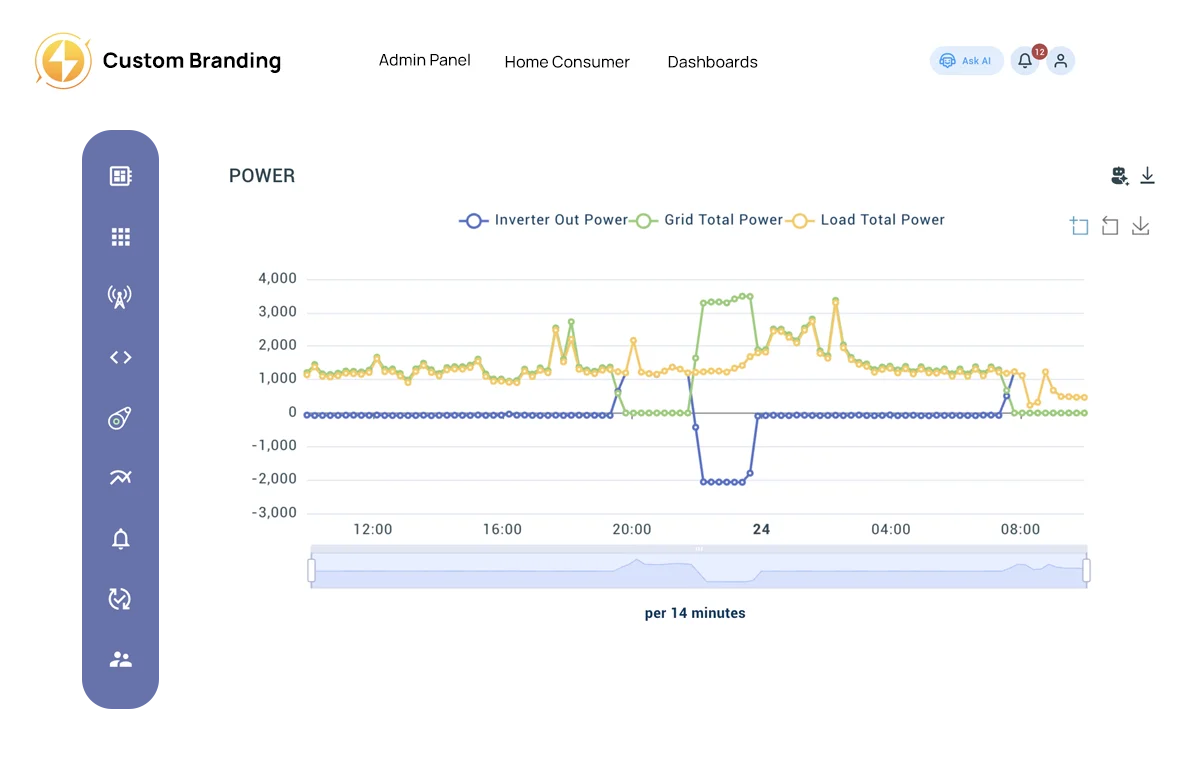
Smart Integration for Workflows and Maintenance
Connect with external CRM and ERP systems via REST or MQTT bridges for seamless data exchange and automated workflows. The integration also enables creating and syncing work orders for solar panels, batteries, and inverters — unifying service and operations in one flow.
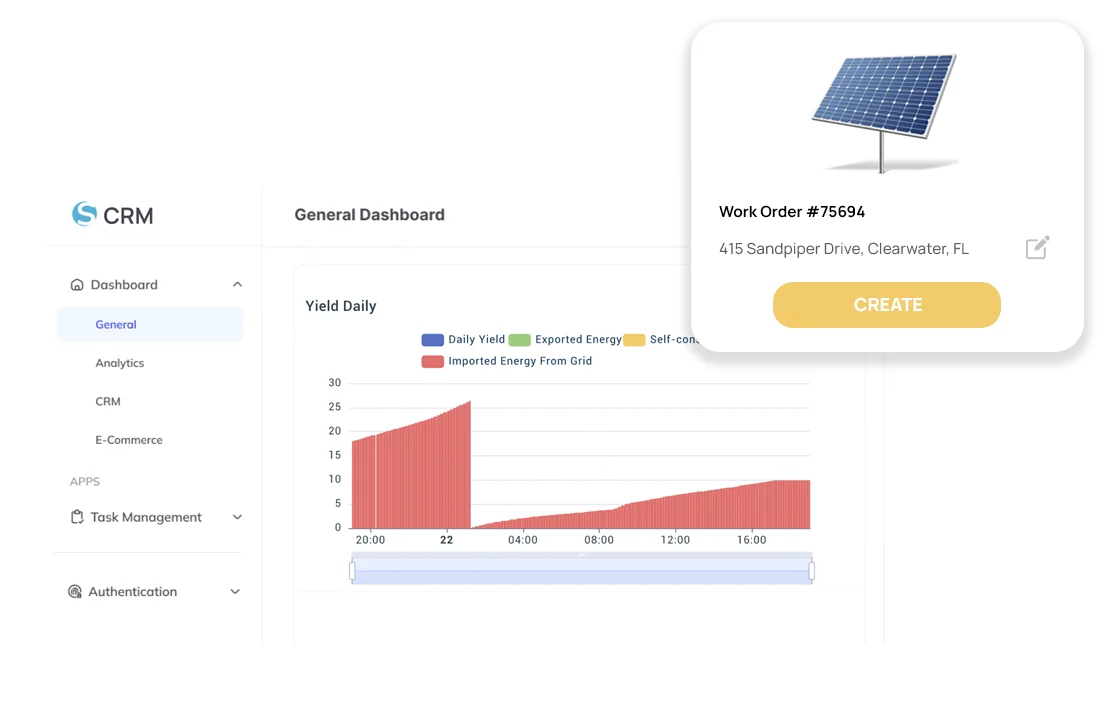
Security & Data Integrity

End-to-End Encryption
All communication between devices and brokers is protected with TLS encryption, ensuring that telemetry and control data remain confidential and tamper-proof throughout transmission.

Per-Device Authentication
Each device is provisioned with a unique authentication key, enabling secure identification and fine-grained access control. Compromised or inactive units can be instantly revoked without affecting the rest of the fleet.

No Third-Party Dependencies
The system operates entirely within your chosen environment — no external cloud services or API calls are required. This guarantees full control over data flow, security policies, and compliance boundaries.

Audit and Traceability
A comprehensive audit trail records all firmware updates, configuration changes, and device actions, providing transparency and accountability across the entire deployment lifecycle.







